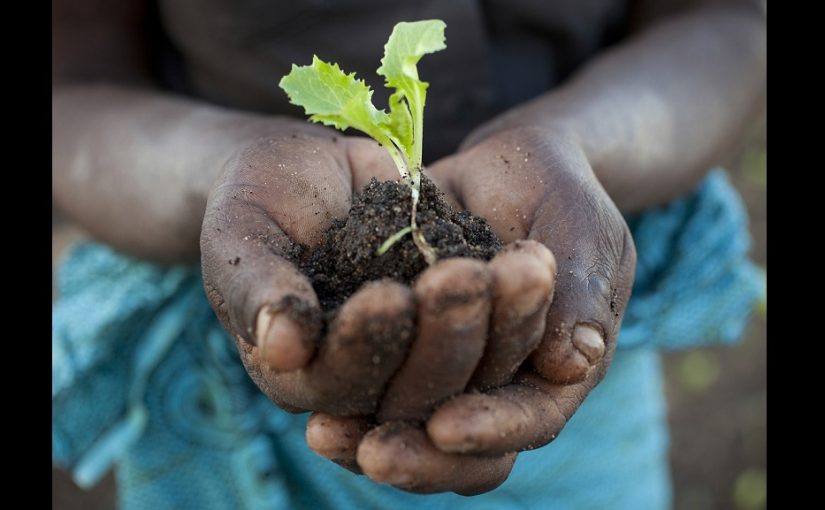Mozambique: PDUNM will rebuild two thousand houses and generate around eight thousand jobs
Mozambique: Impact of big projects; crony contracts – By Joseph Hanlon

File photo: Oxfam
Neighbours of big projects pay the price
Reports last week underline that from Cabo Delgado to Tete to Maputo, the neighbours of big projects gain nothing and often pay a high price.
- Gemfields finally sets up grievance panel
Ruby miner Gemfields agreed to pay $8.3 mn to settle 273 claims of killings, severe beatings and house burnings related to the Montepuez ruby mines, the company announced on 29 January 2019. http://bit.ly/Ruby-Moz436 Importantly, Gemfields agreed an independent grievance panel which can award compensation for any future claims, although it has taken nearly two years to set up the panel.
The panel finally met for the first time last week, and has been appointed chair. A journalist and chair of the Press Council (CSCS), Tomas Vieira Mario is executive director of development NGO Sekelekani, which published reports on the impact of the ruby mines in 2014, 2016 and 2018. https://www.sekelekani.org.mz/%3Fp=3274
The mine has very high level political links. Montepuez Ruby Mining is 75% owned by Gemfields and 25% by Mwiriti, which is controlled by Raimundo Pachinuapa, a liberation war commander now on the Frelimo Political Commission. MRM is chaired by Samora Machel Jr. Pachinuapa’s son Raime is MRM’s director of corporate affairs. The negotiated settlement came after a case was brought in the London High Court in April 2018 by human rights lawyers Leigh Day claiming “serious human rights abuses at or around” MRM’s mine.
- Farmers still fighting for compensation in Pemba
After seven years, displaced farmers are still fighting Portos de Cabo Delgado for adequate compensation after being thrown off land across the bay from Pemba. Farmers supplying vegetables to Pemba were given 7.5 MT (10 US cents) per square metre, even if it had fruit trees or bananas, which means $500-$1500 per farm – not enough to buy land for a new livelihood. The issues has gone to court and 51 families have refused to accept the tiny compensation offered. (O Pais, 17 Nov)
The Pemba Logistics Base is being built on the site but still has no customers because the gas companies refuse to use it. Portos de Cabo Delgado is a joint venture between the opaque Italian-Nigerian oil services company Orlean Invest and ENH, Mozambique’s national oil company, and its ownership has made it unacceptable to US authorities. (See this newsletter 304, 435, 503)
- Vale to expand disruptive mining
Falling demand for coal plus Covid-19 forced Vale Mocambique to reduce mining in Tete, with coal shipped through Nacala down 40% in the 3rd quarter. (Lusa 19 Nov) But last week Vale said it has started a project to “revamp” its Moatize, Tete mine to produce 15m tonnes of coal per year. But Zitamar revealed last year that Vale and the government were hiding pollution statistics showing the dangerous and illegal levels of pollution that the operation causes. https://zitamar.com/vale-government-hide-dangerous-pollution-levels-moatize-community/
“The residents of Moatize will hope the mine never does reopen,” comments Zitamar (17 Nov). “Explosions at the mine cause earthquakes that destroy people’s houses, as well as filling the air with coal dust. The coal industry has truly been a curse for the people of Tete province unfortunate enough to live near the various mines, and who have, among other problems, either not been resettled or have been resettled unsatisfactorily. Vale is also facing various legal proceedings from workers who claim their health has been irreparably damaged. Vale and other coal miners are running out of countries that will tolerate the industry, but Mozambique continues to allow itself to be abused, for now.”
- They took our land for game farms and gave us nothing
Thirteen years ago they took our farms to create game farms and safari lodges, and they gave us nothing, says Mateus Zaqueu, resident of Mapulanguene, Magude district, Maputo Province, on the border with South Africa and Kruger Park. The law says that they the community is to receive 20% of government revenue from these projects, but Masintonto Ecoturismo, Joao Ferreira Reserve, Safari Mondzo farms and Karingana Game Reserve have never paid. (Carta de Mocambique, 17 Nov)
Almina Ubisse, Secretary of Frelimo’s Organisation of Mozambican Women (OMM) in the village, says “our children do not work there, yet they employ people from other areas.” Some people were resettled, but now the houses are falling down, says Capitine village secretary Wilson Siboya.
- Frelimo’s Manica gold rush
Gold has hit it highest price in 40 years, and this has sparked a gold rush in Manica province, in Manica and Barue districts on the border with Zimbabwe. Licences have been issued to the Frelimo elite, who never go to their mines but simply concession Chinese companies to run the mines, according to a front page investigation by Savana (20 Nov). Flomining is the company of Florindo Jacinto Nyusi, son of President Filipe Nyusi, and has a 3800 ha concession. The mine was formally inspected two weeks ago and the Chinese company operating the mine was accused of irregularities.
Adjoining Florindo’s mine is the gold mine of the Guebuza family company, Focus 21, operating partly without a licence, after one of its licences was revoked because it had been granted allegedly in error, in the on-going battle between the present and former presidents.
Other mines are owned by Frelimo members of parliament, ex Manica governor Felicio Zacarias, the son of the head of the liberation fighters association, an administrator of the Cahora Bassa dam, and the former head of the stock exchange. At a much smaller level, Savana reports that local officials also permit Frelimo artisanal miners to continue to mine without licences.
The highlands near Zimbabwe have some of Mozambique’s best farmland, but thousands of farmers are being pushed off their land by the gold miners. Under Mozambican law mining takes precedence over farming.
The mines are causing huge environmental damage, particularly polluting the Rovue River which is an important source of drinking water. Two gold mining companies had the licences suspended in October for dumping their waste in the river. Rivers are being polluted and the miners leave huge craters which are then abandoned. Communities have tried to police the mining, only to find the miners are protected.
Artisanal miners are being pushed out by the Frelimo miners in Manica, but elsewhere hungry artisanal gold miners take increasing risks. A flash flood on the Meluli river in Rapale, Nampula, on 12 October, killed 16 artisanal gold miners. And cholera killed 6 artisanal miners in Namuno, Cabo Delgado, this month.
- While Renamo mines tourmalines
While Frelimo chases gold in Manica province, Renamo controls the tourmalines, gemstones valued for their bright colours. One of the sources of income of Renamo has been tourmaline mines in Barue, controlled by Socadev Holding, the company of the late Renamo leader Afonso Dhlakama. Mostly without formal licences, an areas of 10,000 ha was controlled by Renamo forces. Afonso’s son Sebastiao has taken over the mine and the company. Guerrillas have been removed from the mines, as part of the current demobilisation, and government officials can now enter the area. (Savana 20 Nov)
- Sasol finally looks to local business
After 15 years producing gas in Inhambane, Sasol has finally admitted it has not done enough to promote the involvement of local businesses. Sasol administrator Ovidio Rodolfo announced a new programme to provide credit, training in key areas so businesspeople can qualify to tender, and vocational training. (O Pais 18 Nov)
Sasol’s gas wells are in Inhambane and it sends the gas to South Africa via a pipeline.
Contracts
- Prestige buildings flooded
The new Bank of Mozambique building in Chimoio was flooded by rainwater on 10 October, the day after it was opened by President Filipe Nyusi. On 10 November the newly renovated Beira Central Hospital operations block was flooded by rainwater. The Mozambique Engineers Association put the blame for both on the contractors and sub-contractors. (O Pais 17 Nov, https://www.facebook.com/Ordem-dos-Engenheiros-de-Mocambique_oficial-108006094103198/) Association head Ibrahimo Remane said that contractors often obtained contracts for which they were not qualified and there was corruption – using cheaper and poor quality materials, as well as bribing inspectors.
Contractors Federation head Manuel Pereira blamed lack of inspection, and lack of monitoring by the Ministry of Public Works.
Public Works Minister Joao Machatine told a ministry coordinating council meeting that there is poor quality in many projects and there have been substantial losses, but that this is inevitable. (O Pais 20 Nov) This is due to poor project management, and money is stolen from projects.
In the UNU-Wider diagnostic of Mozambique (see newsletter 506 last week), former health minister Ivo Garrido wrote that construction contracts are often “based on party political affiliation, nepotism, [and] friendships”, resulting in poor quality buildings.
- Lessons from London on crony contracting
Britain has organised crony contracting in a much more formal way. It set up a “high-priority” crony channel for bidders for Covid-19 personal protective equipment (PPE). Almost 500 suppliers with links to politicians or senior officials were referred to the channel, where suppliers were 10 times more likely to be awarded a contract that those using the normal system.
The existence of the special crony channel was revealed by the UK National Audit Office (NAO). Anyone referred to the crony channel was automatically treated as credible and qualified, and not checked. Contracts were given to those on the crony list without competitive tendering, and crony listers were allowed to charge up to 25% more than ordinary companies would have charged. Some were awarded contracts without paperwork, or told to start without contract. The Guardian (18, 21 Nov) says this explains why so many contracts when to past or present advisers of the Conservative party and friends of senior Conservatives.
Comment: Not very long ago, if Mozambique had created a special crony channel for contracts, donors such as the UK would have screamed about good governance. But in a short time, the Mozambique model of crony contracts has spread to Europe and elsewhere. It shows that the change is not just in aid and rules for poor countries. The very rapid change in donor priorities from good governance to gas contracts and investment was noted in the UNU-Wider report. And the donors now expect that cronies will profit and thus demand special treatment for their national companies.
The UK announced Friday 20 Nov plans to invest GBPounds 46 million ($60 mn) in the agro-industrial sector of Mozambique. Presumably British investors will understand that they have to be in partnership with someone on Frelimo’s crony list who will take a share.
Another important change in attitude is shown by Priti Patel, who was DfID minister and visited Mozambique in 2017. She blocked aid to Palestine and was sacked as minister in 2017 for improper meetings with the Israeli officials. After she was sacked, Patel was accused by officials in her private office at DfID of humiliating civil servants in front of others, and of creating a general sense that “everyone is hopeless”. Her punishment was brief and she was promoted to Home Secretary in 2019, making it clear that ministers were allowed more outside activities. Now an official investigation found that she was guilty of bullying, intimidating and insulting behaviour in DfID, Trade, and the Home Office to such an extent that it violated the Ministerial Code – normally a sacking offence. Prime Minister Boris Johnson on 20 November dismissed the report and backed Patel – so Mozambican officials and business people can expect much more aggressive behaviour from British officials and business people, but also have the right to respond robustly. jh
The UK is shifting aid money to the military. The UK has closed its aid ministry, DfID and put it inside the Foreign Office. The UK is one of the countries that has proudly kept to the UN target of 0.7% of GDP as aid, but Chancellor (Finance Minister) Rishi Sunak wants this cut to 0.5%. (The Guardian 18, 20 Nov) In 2019 UK aid was GBP15.2 bn ($20 bn). A cut to 0.5% would cut UK aid by at least almost GBP4 bn. But Prime Minister Boris Johnson also announced the largest increase in military spending since the end of the Cold War – £4.1 bn per year. Clearly aid money is being shifted to the military.
By Joseph Hanlon













Leave a Reply
Be the First to Comment!
You must be logged in to post a comment.
You must be logged in to post a comment.